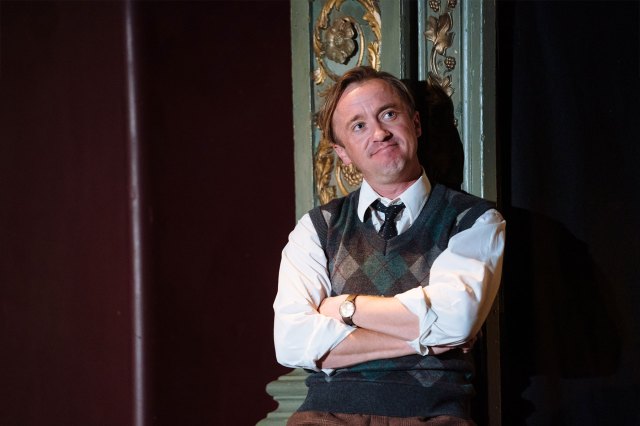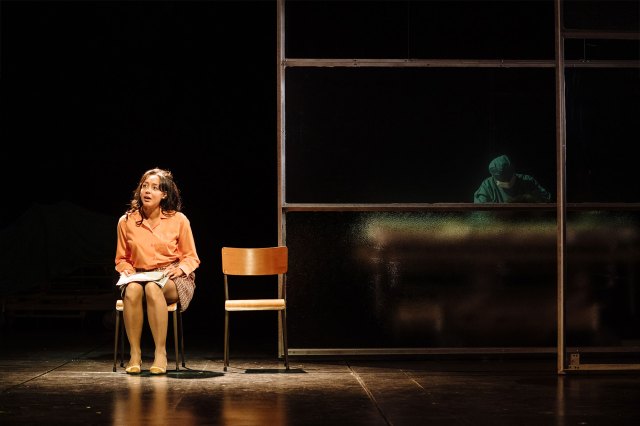A Child of Science starring Tom Felton, Meg Bellamy and Adelle Leonce at Bristol Old Vic – review
Matthew Dunster’s production of Gareth Farr’s IVF-infused play runs until 6 July

In viro fertilisation (or IVF in abbreviated form) has been responsible for a reported 10 million babies worldwide since Louise Brown became the first in 1978 in Royston, Oldham. It led to the Nobel Prize for Robert Edwards in 2010 (his co-developers Patrick Steptoe and Jean Purdy could not be awarded the accolade, having already passed away). It is one of the biggest medical breakthroughs of the contemporary age. It is also crucial to the writer and director of this new work A Child Of Science, Gareth Farr and Matthew Dunster, who fathered children through the process.
Interestingly, it is the second big play about medical breakthroughs for mothers that Bristol Old Vic has produced in the past couple of years. This production feels worlds away though from Tom Morris and Mark Rylance’s theatrescape dream world of Dr Semmelweis, from the poster to Anna Fleischle’s slick screen-based set design, it has all the trappings of a contemporary Sunday night ITV drama.
And indeed, for the first act of this show, I had the nagging suspicion that it would be better suited to the screen. With multiple cinematic jump cuts, a huge host of characters portrayed by a diligent ensemble, and a couple of photogenic leads more used to work on camera, the first half – full of biographical introductions to our protagonists – drags on. It climaxes with our medical ‘Avengers’ finally face-to-face and agreeing to begin working together. It then takes off.

This may be because, in the second half, the focus tightens in on one would-be Mum, who goes through round after round of initial IVF treatment, each time unsuccessful, each time providing the medical world with more evidence to support the process. Adelle Leonce is terrific in the role, showing the character’s bounce and flirtatious bonhomie early on as we see how she and her husband meet and decide to have kids and her eventual desperation for the child that hasn’t arrived, a ticking clock reminding her of time running out. The late scene where Jean (in a solid professional stage debut from The Crowns’ Meg Bellamy) explains how her courage to keep going against overwhelming odds has helped others, draws audible sobs from the auditorium. We may have decided we knew who our heroes were, but the play has its ideas about where true courage comes from.
Dunster has directed with his customary flair, the virtual choir with projections of women on the screens showing us that this ’70s set tale is directly relevant today. However, there are missteps, it’s a slow burn, its first act feeling stolid. It contains a nervous performance from Tom Felton as Edwards, who seems unsure of his lines and doesn’t have a strong grasp of the obsessed doctor who changed medical science. It leaves a hole in the centre, with scenes between him, Bellamy and Jamie Glover (as Steptoe) evoking that uneasy feel of performers struggling to stay on top of the material. Glover is a fine actor, and essays well the portrayal of a decent man who cares about his patients, even as the growing excitement of the first ‘test tube baby’ begins to turn the trio’s lives upside down and into thriller territory with prowling journalists, angry papists and bomb threats being called in.
Artistic director Nancy Medina has vowed to make Bristol Old Vic a hub for new writing and A Child of Science is a powerful new work to begin this phase. Slick and emotive, it shows that when theatre purrs and hits upon a subject that feels as contemporary today as it did then, it connects. Some fiddling with the first act and you can see this joining the roster of Bristol shows that have ended up in London.


















